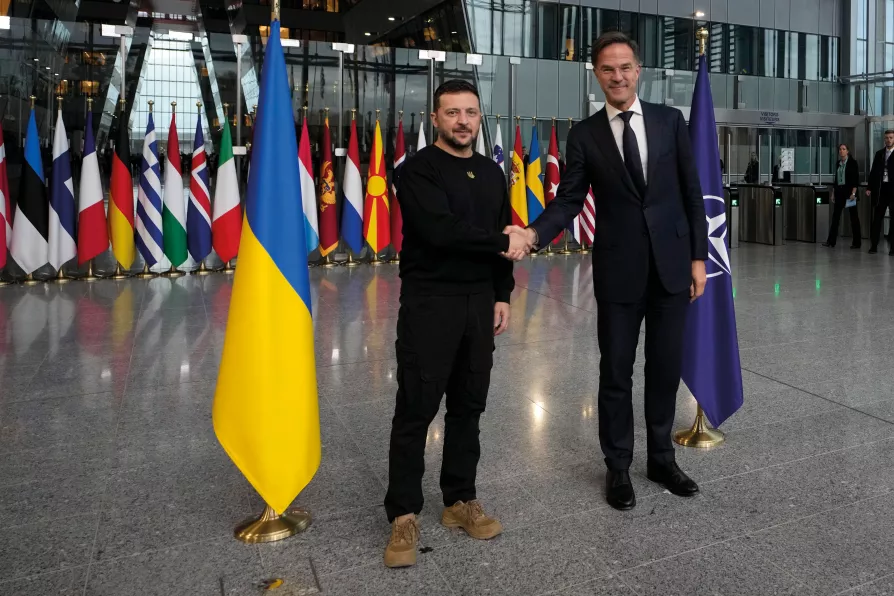Does widespread and uncontrolled use of AI change our relationship with scientific meaning? Or with each other? ask ROX MIDDLETON, LIAM SHAW and MIRIAM GAUNTLETT

 FUELLING CONFLICT: Nato Secretary General Mark Rutte (right) with Ukraine’s President Volodymyr Zelensky in Brussels, October 17 2024
FUELLING CONFLICT: Nato Secretary General Mark Rutte (right) with Ukraine’s President Volodymyr Zelensky in Brussels, October 17 2024
CONSIDERING the importance of Nato in international affairs, it feels like there is a real lack of analysis and critique of the US-led military alliance.
Nato: What You Need To Know, the new book co-authored by US anti-war activists Medea Benjamin and David Swanson, therefore fills an important knowledge gap in understanding the now 75-year-old organisation — described by Professor Jeffrey D Sachs in the preface as “a clear and present danger to world peace, a war machine run amok.”
Ian Sinclair asked Benjamin and Swanson about Nato’s founding purpose, the lack of democracy at its heart and the impact of Nato’s intervention in Kosovo on subsequent Western foreign policy.

The colonial mindset behind the governance of the UN is the reason for its inertia when it comes to conflict resolution, argues ROGER McKENZIE – but can China’s Global Governance Initiative point in a new direction of global equality?

In the first half of a two-part article, PETER MERTENS looks at how Nato’s €800 billion ‘Readiness 2030’ plan serves Washington’s pivot to the Pacific, forcing Europeans to dismantle social security and slash pensions to fund it

Speaking to a CND meeting in Cambridge this week, SIMON BRIGNELL traced how the alliance’s anti-communist machinery broke unions, diverted vital funds from public services, and turned workers into cannon fodder for profit










